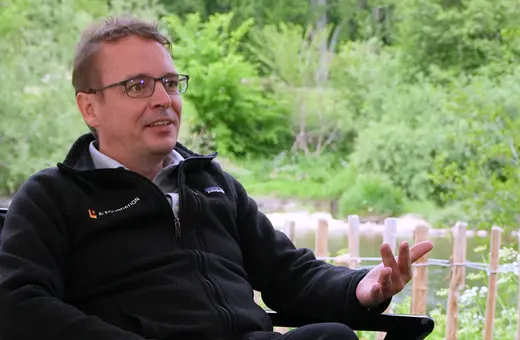Benny Peiser is a social anthropologist best known for his work on the portrayal of climate change. The founder of CCNet, a leading climate policy network, Peiser is co-editor of the journal Energy and Environment and director of the Global Warming Policy Foundation.
Ahead of his appearance at this year’s HowTheLightGetsIn festival, we spoke to him about changing attitudes to climate change.
You have previously argued that scientists are overstating the significance of anthropogenic climate change. What, then, do you believe is the source of our panic over global warming?
I think it's a combination of factors. It's of course something comparatively new, and what very often occurs when people experience a new hazard, a new risk that they haven't encountered before, is that they are increasingly concerned because it's an unknown hazard. So that's the backdrop to the concern, and then of course we've had the climate science community ratcheting up the rhetoric, which was kicked up by the media because the media like a good scare.
In reality of course, if you just look at the observational evidence, there was no real signal or any evidence to suggest that we are facing an imminent disaster. The warming of the last 150 years has been very slow and very moderate – 0.8 degrees of warming over 150 years is very, very moderate. Very slow and very gradual, and there's no cause for alarm. The actual warming we have experienced is rather low, and the alarm is about speculations of what may happen in the future. There is a reliance on predictions of the future, based on computer modeling.
So I would argue there is a discrepancy between what has been observed in reality, and what has been claimed is going to happen in the future. I think the alarm is mainly based on the claims that the future will be so much worse than what we have observed over the last 100 or 150 years. And that, of course, is pure conjecture. Doomsday prophets have always managed to scare people by making very strong predictions of the future, and so the question then is how reliable are these predictions.
Is the damage done by over-preparing for potential environmental disaster comparable to the damage done by being under-prepared for it?
Given that we've had so many environmental scares over the last 40 or 50 years, it’s safe to say that the world would respond differently if we were actually experiencing a real climate crisis.
Really?
Of course! The reason why the international community isn't doing anything about it effectively is twofold: A, it's extremely expensive; and B, there's no political pressure to do anything about it because the public, by and large, is not concerned. So in a way the alarm isn't actually working.
That's an interesting thing, the panic and then the lack of action. It's a curious thing.
It's a combination, as I said. Some countries have actually tried to do something about it, but they are now feeling the pain and the cost of doing it on their own when it hasn't had any actual effect on CO2 emissions.
What kind of cost do you mean?



















Join the conversation